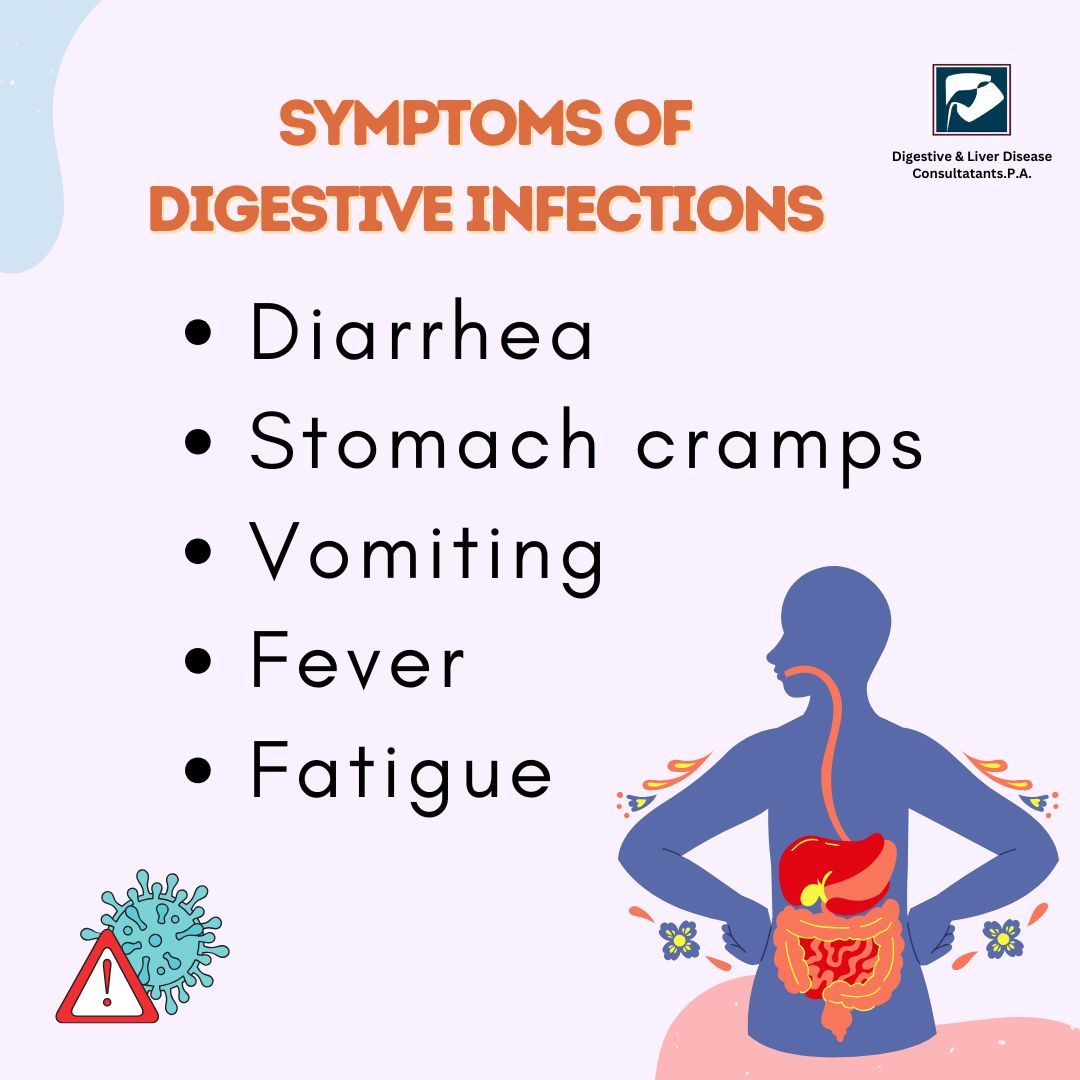Your digestive system is essential for breaking down food, absorbing nutrients, and keeping your body healthy. However, it is also exposed to many harmful bacteria, viruses, and parasites that can cause infections. These infections can lead to unpleasant symptoms like diarrhea, nausea, vomiting, stomach pain, and more serious complications if left untreated.
Protecting your digestive system from infections is crucial for maintaining overall health. In this blog, we will explore effective ways to keep your digestive system safe, discuss the importance of gut health, and highlight when to seek medical attention.
Understanding Digestive Infections
Digestive infections occur when harmful microorganisms enter your gastrointestinal (GI) tract. These infections are commonly caused by:
Bacteria – Such as Salmonella, E. coli, Campylobacter, and Clostridium difficile (C. diff).
Viruses – Including norovirus and rotavirus, which often cause gastroenteritis (stomach flu).
Parasites – Such as Giardia and Cryptosporidium, which are usually found in contaminated water.
Symptoms of digestive infections can range from mild to severe and may include:
- Diarrhea
- Stomach cramps
- Vomiting
- Fever
- Fatigue
While some infections resolve on their own, others require medical treatment to prevent complications like dehydration, malnutrition, and prolonged illness.

How to Protect Your Digestive System from Infections
1. Practice Good Hygiene
One of the simplest ways to prevent infections is by maintaining proper hygiene.
Wash your hands – Always wash your hands with soap and water before eating, after using the restroom, and after handling raw food. Handwashing helps prevent the spread of bacteria and viruses.
Clean food surfaces – Disinfect kitchen counters, cutting boards, and utensils to avoid cross-contamination.
Keep your surroundings clean – Regularly sanitize high-touch surfaces, especially in shared spaces.
2. Eat a Healthy, Balanced Diet
A strong digestive system starts with good nutrition. Eating a variety of foods that support gut health can help prevent infections.
Probiotic-rich foods – Yogurt, kefir, sauerkraut, and kimchi contain beneficial bacteria that promote a healthy gut microbiome.
Fibre-rich foods – Whole grains, fruits, and vegetables improve digestion and support gut health.
Hydration – Drink plenty of water to help your digestive system flush out toxins and maintain a balanced gut environment.
3. Be Cautious with Food and Water
Foodborne infections are common causes of digestive illnesses. To prevent them:
Cook food thoroughly – Ensure meat, poultry, and seafood reach safe internal temperatures to kill harmful bacteria.
Avoid raw or undercooked food – Sushi, raw eggs, and unpasteurized dairy can carry bacteria that cause infections.
Store food properly – Refrigerate leftovers within two hours and avoid eating expired food.
Drink clean water – If travelling, opt for bottled water and avoid tap water in areas where water safety is questionable.
4. Avoid Contaminated or Unsafe Environments
Be mindful when swimming – Pools, lakes, and rivers can harbour bacteria and parasites that may cause digestive infections.
Watch out for foodborne outbreaks – Stay informed about recalls or contamination alerts related to foodborne illnesses.
5. Strengthen Your Immune System
A strong immune system can fight off infections more effectively. To boost immunity:
Get enough sleep – Rest helps your body recover and maintain gut health.
Exercise regularly – Physical activity supports digestion and immune function.
Manage stress – Chronic stress can weaken the immune system and make the gut more susceptible to infections.
6. Be Cautious When Taking Antibiotics
While antibiotics are necessary for bacterial infections, overuse can disrupt gut bacteria and lead to issues like antibiotic-associated diarrhea or C. diff infections. Only take antibiotics as prescribed by a doctor and consider taking probiotics during antibiotic treatments to support gut health.
When to See a Doctor
While mild digestive infections often resolve on their own, some cases require medical attention. See a doctor if you experience:
- Persistent diarrhea lasting more than two days
- Severe stomach pain or cramping
- High fever
- Blood in stool
- Dehydration symptoms like dizziness, dry mouth, or reduced urination
Digestive & Liver Disease Consultants, P.A. – Expert Care for Your Digestive Health
At Digestive & Liver Disease Consultants, P.A., we specialize in diagnosing and treating a wide range of digestive disorders, including infections, inflammatory conditions, and chronic gut issues. Our experienced team of gastroenterologists provides personalized care and advanced treatments to ensure optimal digestive health.
Whether you need a routine check-up, specialized testing, or treatment for a persistent digestive problem, we are here to help.
Conclusion
Protecting your digestive system from infections is essential for maintaining overall well-being. By practicing good hygiene, eating a healthy diet, avoiding contaminated food and water, and strengthening your immune system, you can significantly reduce the risk of digestive infections.
If you experience persistent or severe digestive symptoms, don’t hesitate to seek medical care. At Digestive & Liver Disease Consultants, P.A., our team is dedicated to providing top-quality gastrointestinal care to keep your digestive system healthy.






